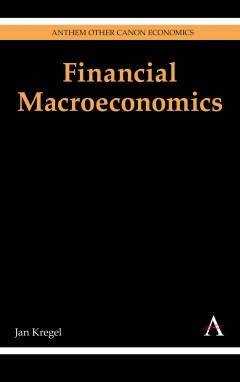Other Formats Available:
- About This Book
- Reviews
- Author Information
- Series
- Table of Contents
- Links
- Podcasts
About This Book
The title of this book may seem to confuse two separate disciplines – finance and macroeconomics. However, it is based on the fact that finance and macroeconomics were integrated, at least in their formative years. It is a natural extension of a line of research that dominated monetary theory in the early part of the 20th century. Economists such as Keynes, Robertson, Hawtrey, Fisher, Hayek and Schumpeter sought to blend the analysis of business cycles with their (often first-hand) experience of money and financial markets. The result was a monetary theory that provided the fertile background to what came to be called macroeconomics. However, in the post-war period, the monetary aspects of this theory dropped out of sight in the neo-classical synthesis and hydraulic Keynesianism. Post-Keynesians such as Davidson and Minsky have done much to try to restore the monetary aspects of the theory, but the other – more technical– aspects of financial analysis have been ignored. Paradoxically, these aspects now form an integral part of the curriculum of finance and business departments and are the tools of the trade in financial analysis. This book aims to show how these tools of financial analysis were initially part of the early investigations of macroeconomics and how they maybe used to provide a realistic analysis of the behavior of modern financial economies.
Reviews
A seminal, ground-breaking, meticulous study comprised of twenty-one erudite, insightful, thought-provoking study hallmarked by meticulous and documented scholarship, "Financial Macroeconomics" is a significant contribution to the field of Economic Theory and unreservedly recommended for personal, professional, and college/university library Economics collections and supplemental curriculum studies lists. It should be noted for students, academia, governmental/corporate economists, and non-specialist general readers with an interest in the subject. —Midwest
Author Information
Jan Kregel teaches Financial Macroeconomics and Development Finance at the Tallinn Technological University and at the New School for Social Research in New York.
Series
Anthem Other Canon Economics
Table of Contents
Introduction: Part 1 Methodology; Part 2 Effective Demand; Part 3 Price Theory, Theory of Interest and Financial Markets; Part 4: Unconventional Monetary Policy, Quantitative Easing, Yield Curve Twisting and Liquidity traps; Publication History; Index
Links
● Midwest
Stay Updated
Information
Latest Tweets



